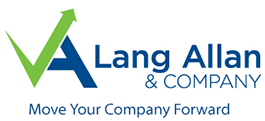Preparing for an external audit can be a daunting task, especially for construction companies that juggle complex projects and intricate financial details.
By organizing your financial records, ensuring accurate project costs and revenue recognition, avoiding common mistakes, strengthening internal controls, and maintaining audit readiness year-round, your construction company will be well-prepared to face an external audit with confidence.
External Audit Strategies
To help navigate this process, let’s to discuss the most effective strategies for ensuring your company is audit ready.
Gather and Organize Your Financial Records
One of the first steps in preparing for an audit is to ensure that all your financial records are in order. The most crucial documents include your financial statements, such as the balance sheet, income statement, and cash flow statement. You should also have detailed records of contracts, project budgets, and cost estimates.
In addition to these core documents, it’s essential to have supporting records like invoices, receipts, payroll records, and bank statements readily available. Documentation related to change orders, progress billing, and any legal agreements impacting your financials should also be meticulously organized.
Ensure Accurate Project Costs and Revenue Recognition
Revenue recognition can be particularly challenging for construction companies, given the long-term nature of projects. The importance of using the percentage-of-completion method, which matches revenue with the progress of a project, is very important. This method requires accurate cost tracking and consistent updating of project budgets.
To avoid raising red flags during an audit, maintain clear documentation for any changes in project scope and ensure that costs are allocated to the correct project phases. Regularly reconciling your financial records with actual project progress is crucial for accuracy.
Avoid Common Audit Preparation Mistakes
Several common mistakes construction company owners often make during the audit preparation process include:
- Not keeping thorough records, especially for change orders and subcontractor agreements, and
- Misallocation of overhead costs, which can significantly impact project profitability.
To steer clear of these issues, maintain detailed and organized records throughout the year and conduct regular reviews of your financials to ensure accuracy. An internal review before the external audit can also help identify and correct any discrepancies.
Strengthen Your Internal Controls
Internal controls are a vital aspect of your company’s financial health and can greatly influence the outcome of an audit. These controls include procedures for authorizing expenses, tracking inventory, and managing payroll.
Strong internal controls not only reduce the risk of errors and fraud but also lead to a smoother audit process with potentially fewer audit adjustments. Companies with effective internal controls are better positioned to present accurate and reliable financial statements during an audit.
Stay Audit-Ready Year-Round
Finally, to stay audit-ready, you should adopt a proactive approach by conducting regular internal audits or reviews, maintaining up-to-date financial records, and ensuring all transactions are properly documented. Also, to further ease the final audit process:
- Keep an open line of communication with us.
- Address any complex transactions or changes in accounting standards as they arise to avoid surprises during the audit.
- Implement a structured year-end close process will further ease the final audit process.
Preparing for an external audit may seem overwhelming, but with the right strategies and practices in place, it can be a manageable and even smooth experience.
For more tips and personalized guidance on preparing your construction company for an external audit, don’t hesitate to contact our experienced accounting team. We’re here to help ensure your financial health and compliance as you move your company forward.
